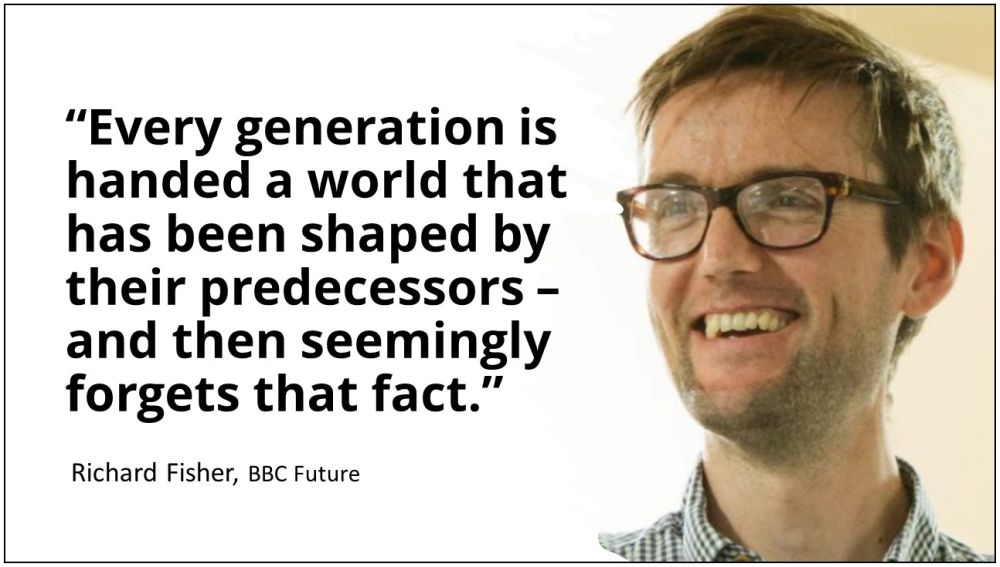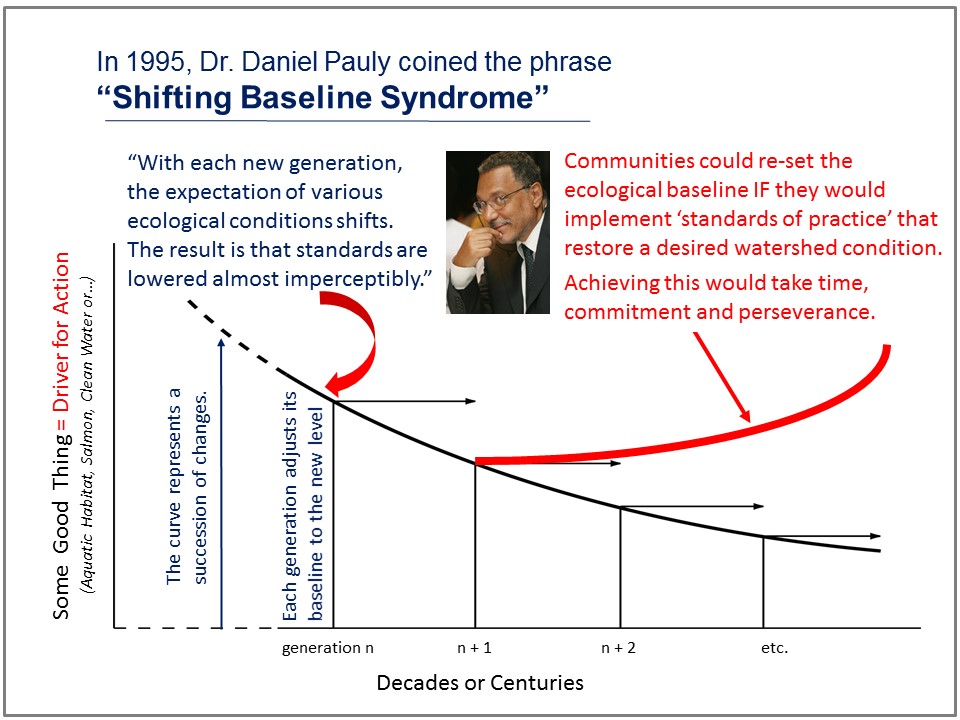GENERATIONAL AMNESIA: “Every generation is handed a world that has been shaped by their predecessors – and then seemingly forgets that fact,” wrote Richard Fisher, BBC Senior Journalist and member of the BBC Future team of writers (June 2021)
Note to Reader:
In a complex, fast-paced world of soundbites, knee-jerk opinions and information overload, BBC Future provides something different: a home for slowing down, delving deep and shifting perspectives. The mission of BBC Future is described as follows:
“Through evidence-based analysis, original thinking, and powerful storytelling, we shine a light on the hidden ways that the world is changing – and provide solutions for how to navigate it.”
Published in June 2021, the article titled Generational amnesia: The memory loss that harms the planet by Senior Journalist Richard Fisher is especially relevant in describing the vision and mission of the Partnership for Water Sustainability in British Columbia.

Generational Amnesia: The Memory Loss that Harms the Planet
“Can a generation be forgetful? It’s certainly true that older generations can fail to remember what it was to be young. With age, there comes a predictable derision of youth that seems to afflict almost every demographic cohort over the age of 35 years or so,” wrote Richard Fisher.
“There’s actually a scientific term for this: the “kids these days” effect, which can be traced all the way back to the writing of the Ancient Greeks. One reason, the researchers say, is that people tend to forget that they themselves have changed over time, and so assume that the maturity, attitudes and behaviours of the young are also fixed.”
“However, that’s not the only kind of forgetfulness that happens as the generations pass. There’s another type that is less obvious, called ‘generational amnesia’, which has profound effects on the way that we see the world. And unfortunately, all of us come to suffer from it no matter how young or old we are.”
“Every generation is handed a world that has been shaped by their predecessors – and then seemingly forgets that fact.”
To Learn More:
To read the complete article, download a copy of the article by Richard Fisher titled Generational amnesia: The memory loss that harms the planet.

Generational Amnesia is an effective way to characterize Daniel Pauly’s “Shifting Baseline Syndrome”
“But if the most recent generation is forgetful about the positive steps and changes handed to them by their forebears, then so too can they fail to notice how those predecessors have damaged the world too,” stated Richard Fisher.
“One of the first times this particular type of generational amnesia was observed was back in the 1990s – to describe an effect afflicting researchers who studied fish.”
Daniel Pauly shifted understanding with his Ah-ha Moment
“Dr. Daniel Pauly developed the concept of the Shifting Baseline Syndrome to describe why each new generation lacks direct knowledge of the historical condition of the environment, and how this lack of understanding plays out as a ‘failure to notice change’,” explained Kim Stephens, Executive Director, Partnership for Water Sustainability in British Columbia.
 “Dr. Pauly developed the concept in reference to fisheries management in a one-page paper titled Anecdotes and the shifting baseline syndrome of fisheries, published in 1995. Generational amnesia is certainly an effective way to characterize the Shifting Baseline Syndrome in a way that is attention-grabbing. It resonates!”
“Dr. Pauly developed the concept in reference to fisheries management in a one-page paper titled Anecdotes and the shifting baseline syndrome of fisheries, published in 1995. Generational amnesia is certainly an effective way to characterize the Shifting Baseline Syndrome in a way that is attention-grabbing. It resonates!”
“Communities can shift the ecological baseline upwards; they can replicate a desired watershed condition. This requires commitment and time. It also requires a commitment to overcoming generational amnesia by embracing the idea of the intergenerational baton. This is how we will bring threads of understanding from the past through to the present and to the future.”
Daniel Pauly Quotable Quote
“It’s one of my most cited papers, though it’s a very short piece,” stated Daniel Pauly in a 2010 TED Talk. “It’s like a thinking piece; it has no numbers, no equations. We transform the world, but we don’t remember it. We adjust our baseline to the new level, and we don’t recall what was there.”
To Learn More:
In 2014, the Partnership released a backgrounder that built on the work of Dr. Daniel Pauly to help inform knowledge-sharing as part of a National Workshop Series on Resilient Rainwater Management that showcased British Columbia experience.
To find out how the Partnership applied the understanding provided by Daniel Pauly, download a copy of Creating the Future in British Columbia: Recognize and Address the “Shifting Baseline”. And watch the YouTube video of Kim Stephens explaining this way of understanding, and how to apply it in the local government setting.


